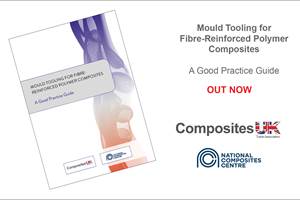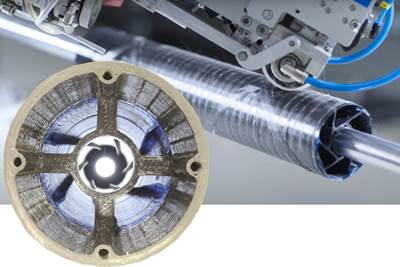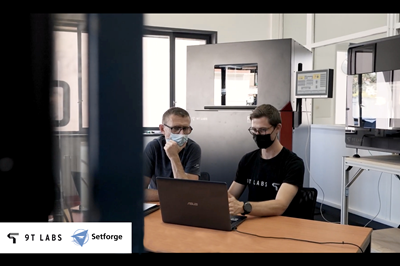9T Labs, Purdue University to advance composites use in structural aerospace applications
Partnership defines new standard of accessibility to produce 3D-printed structural composite parts as easily as metal alternatives via Additive Fusion Technology, workflow tools.
9T Labs AG (Zürich, Switzerland), experts in digital, automated and cost-competitive serial production of continuous fiber components, has announced the company’s new collaboration with Purdue University (West Lafayette, Ind., U.S.) to research and test the potential of manufacturing structural aerospace composite applications at scale with 9T Labs’ Additive Fusion Technology (AFT).
This partnership with Purdue is reported to be a first-of-its-kind collaboration for 9T Labs in the U.S. The hybrid solution, which combines high-resolution additive manufacturing (AM) with the speed of bulk molding compound (BMC) overmolding to automate manufacturing, offers a cost-competitive option versus the traditional production of aluminum aerospace parts, according to the company. 9T Labs’ approach to continuous fiber 3D-printed preform parts has shown potential in the transportation, medical and robotics industries, among others.
Purdue University’s Composite Manufacturing and Simulation Center (CMSC) provides the necessary tools and resources to analyze, simulate and test the performance of composites. 9T Labs and Purdue worked collaboratively to develop the application workflow to efficiently engineer and manufacture high-performance parts using BMC chips and continuous fiber 3D-printed preforms. Initial testing shows that customized continuous fiber hybrid parts can be digitally designed, 3D printed and co-molded with BMC materials, ensuring performance at only a fraction of the usual cost of continuous fiber materials.
“This new partnership with Purdue is an additional step toward building a consortium of partners from academia and industry to penetrate the market.”
“Traditional composites manufacturing is expensive, wasteful and limited in its geometric freedom, particularly for small-sized applications,” Yannick Willemin, head of marketing and business development, 9T Labs, says. “We are defining a new composites manufacturing standard that allows us to produce structural composite parts as easily as metal parts. Our new partnership with Purdue University is a meaningful step toward making this technology more broadly available and accessible within the next 12-18 months.”
The origins of this partnership trace back to when 9T Labs’ CEO and co-founder, Martin Eichenhofer, learned of Dr. R. Byron Pipes, a John L. Bray distinguished professor of engineering, and his work on composites during his PhD studies. “When I heard about the new Composite Manufacturing and Simulation Center led by Dr. Byron Pipes, I reached out to him to discuss what we were doing at 9T Labs,” Eichenhofer explains. “His curiosity was piqued and we discovered an opportunity to work together on advanced thermoplastic composites. It is an honor to work with such a distinguished person and such a great team in the composites field.”
According to Dr. Pipes, Purdue has “chosen to collaborate with 9T Labs because we believe that their development of AFT and their novel hybrid approach is the future of the composites manufacturing industry.”
Beyond the practical applications and potential that the AFT hybrid solution brings to multiple industries, 9T Labs says there are strong economic and sustainability benefits to using this technology. The combination of zero-waste approach, the possibility to recycle thermoplastics and the positive impact on part performance being at least 50% lighter than the metal benchmarks makes AFT an attractive standard of manufacturing. AFT also enhances the strength performance of molded components without compromising manufacturing rates.
“9T Labs is at the forefront of a new field of composites manufacturing that has real-world implications for structural and processing simulation, material compositions and characterization, experimental testing and application engineering,” Eichenhofer adds. “This new partnership with Purdue is an additional step toward building a consortium of partners from academia and industry to penetrate the market and accelerate the adoption of AFT and composite materials for a broad application field.”
Learn more about the company’s technologies, recent collaborations and more at the 9T Labs CAMX booth.
Related Content
The Native Lab launches composites course training membership plan
Courses that touch on the fundamentals of composite materials, design, analysis and more are available for individuals and companies alike through TNL’s online platform.
Read MoreNASA names university teams for aeronautics research challenges
As part of the agency’s University Leadership Initiative, three multidisciplinary teams will address topics related to growth in AAM, while a fourth examines electricity generation for future airliners.
Read MoreComposites UK launches best practice guide for composites tooling
“Mould Tooling for Fibre-Reinforced Polymer Composites” is latest in Composites UK’s series of good practice guides, available online for free.
Read MoreDaher inaugurates Learning Center for training aeronautical talent
Daher offers a concrete solution to the shortage of qualified professionals in aerospace, providing a range of technical programs that prepare workers for the sector’s rigorous demands.
Read MoreRead Next
The evolution of additive composites
Defining additive composites manufacturing and how its merge with conventional processes is providing new solutions and a path forward.
Read MoreSetforge to serially produce composite parts using 9T Labs technology
The former metal component forger seeks the disruptive manufacture of high-performance CFRTP parts using 9T Labs’ Red Series Additive Fusion Solution platform for current and new markets.
Read More“Structured air” TPS safeguards composite structures
Powered by an 85% air/15% pure polyimide aerogel, Blueshift’s novel material system protects structures during transient thermal events from -200°C to beyond 2400°C for rockets, battery boxes and more.
Read More

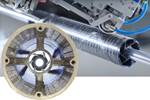
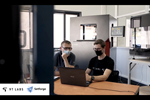

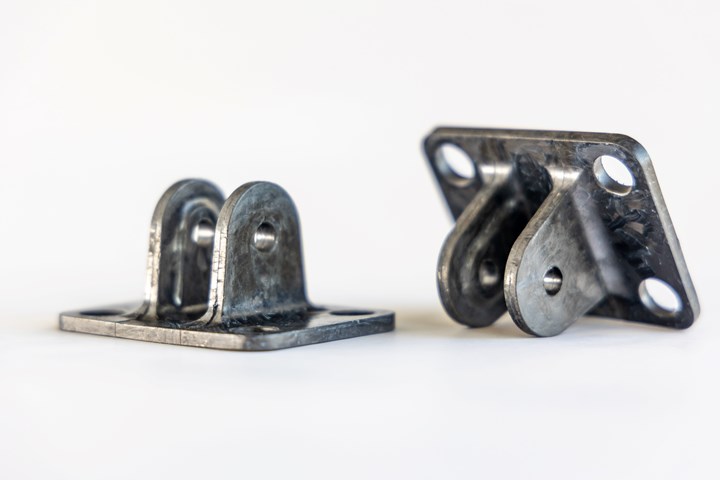













.jpg;maxWidth=300;quality=90)



